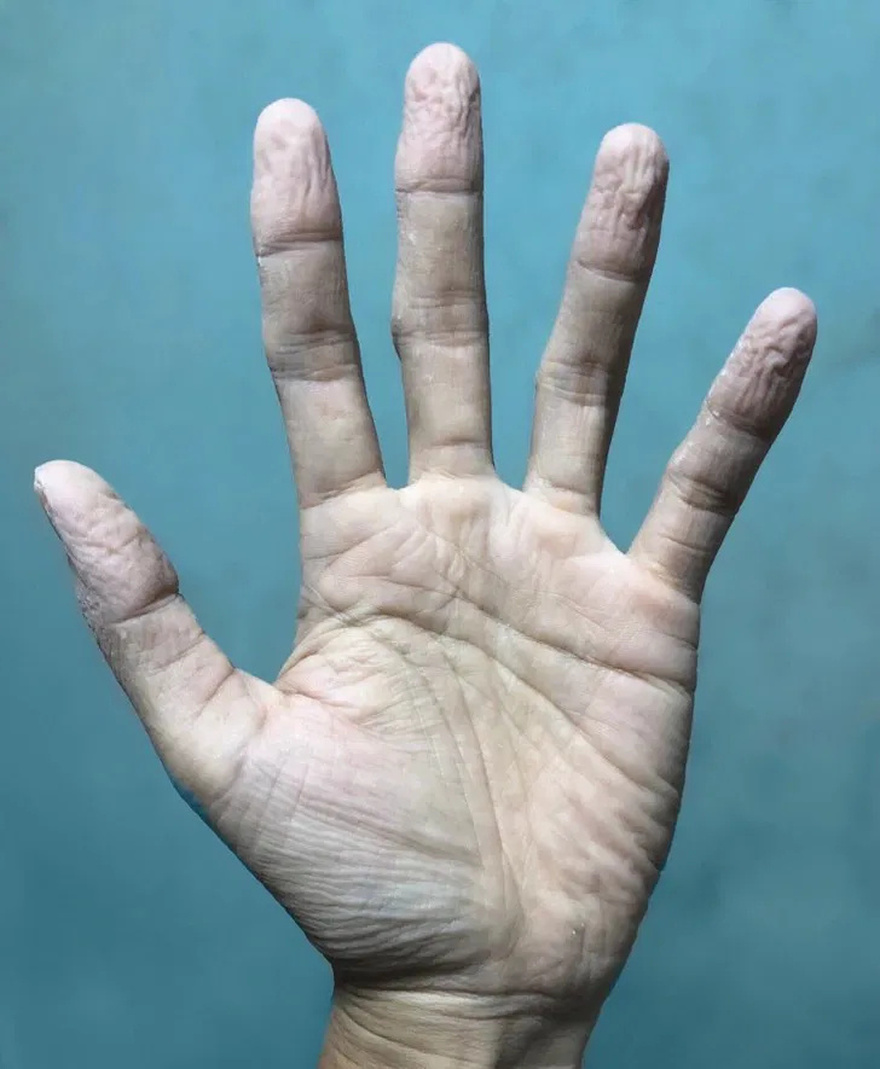While not all of them are cause for alarm, certain common warning signs our bodies offer us about larger issues are frequently overlooked. When our health is at r.i.s.k, it is always better to be safe than sorry. When we observe these symptoms, it’s a good idea to schedule an appointment with our doctor.
1. Dandruff and hair loss

Flaky scalps are a common condition, and when combined with hair loss, they may indicate a lack of essential vitamins and nutrients. Low levels of zinc, B2, B3, B6, and B7 vitamins, as well as iron, can be the source of this common problem.
2. Wrinkly hands and fingers

Wrinkles on our body are a normal, healthy indicator of aging, and pruney fingers occur when we stay in water for an extended amount of time. However, if our hands begin to wrinkle and lose elasticity more quickly than other body parts, your body may be sending you a warning. Wrinkles on your fingertips without any exposure to water may indicate dehydration, poor blood circulation, or a problem with your thyroid.
3. White patches on the tongue

A healthy tongue is usually rosy. If you observe white patches on your tongue, it could be an indication of oral thrush, which is particularly frequent in diabetics. The patches could also indicate a lack of oral care, therefore improving your oral hygiene routine may assist.
4. Skin rashes
Eczema is typically signed by red and itchy skin, however, rashes and fever can also be caused by infections or contact with specific plants. Even if the spots do not appear to be dangerous, they can become infectious, thus they should be checked by a medical practitioner.
5. Swollen ankles

Swollen ankles are a frequent symptom of pregnancy, but if you are not expecting, they can indicate poor blood circulation, heart problems, or underactive thyroid glands. A less significant cause of this symptom is consuming too much salt, which might result in water retention.
6. Dry eyes

This can cause burning sensations, inflammation, and eye injury. Dryness may be caused by aging or some drugs, but it could also be a symptom of Sjogren’s Syndrome. Dry mouth is frequently associated with Sjogren’s syndrome, which is an immune system condition.
